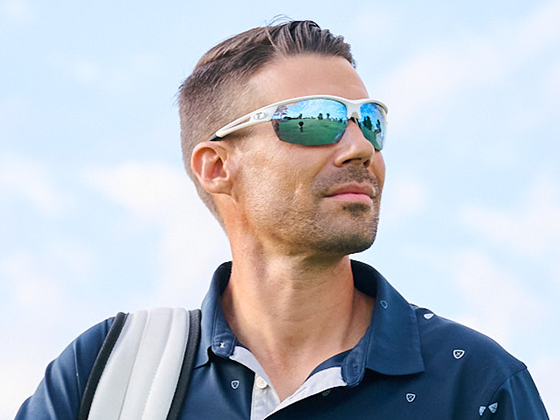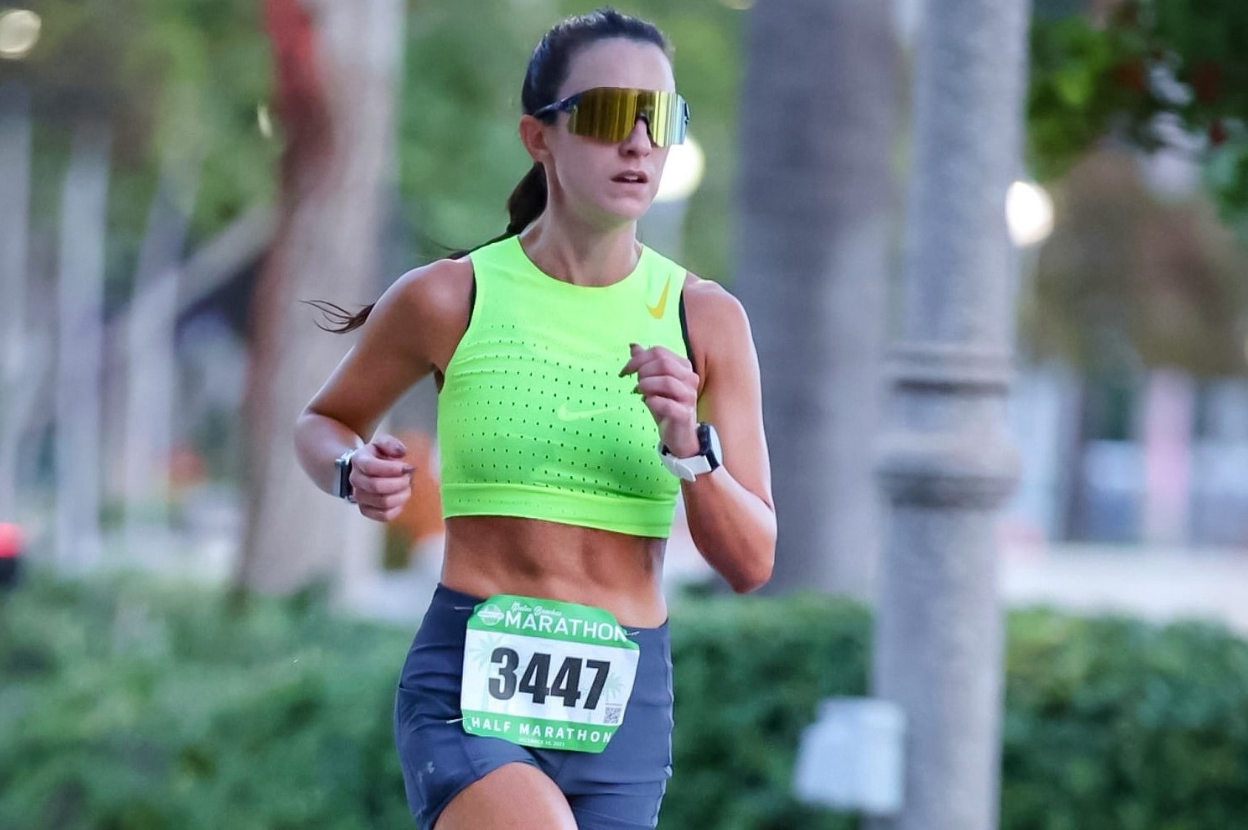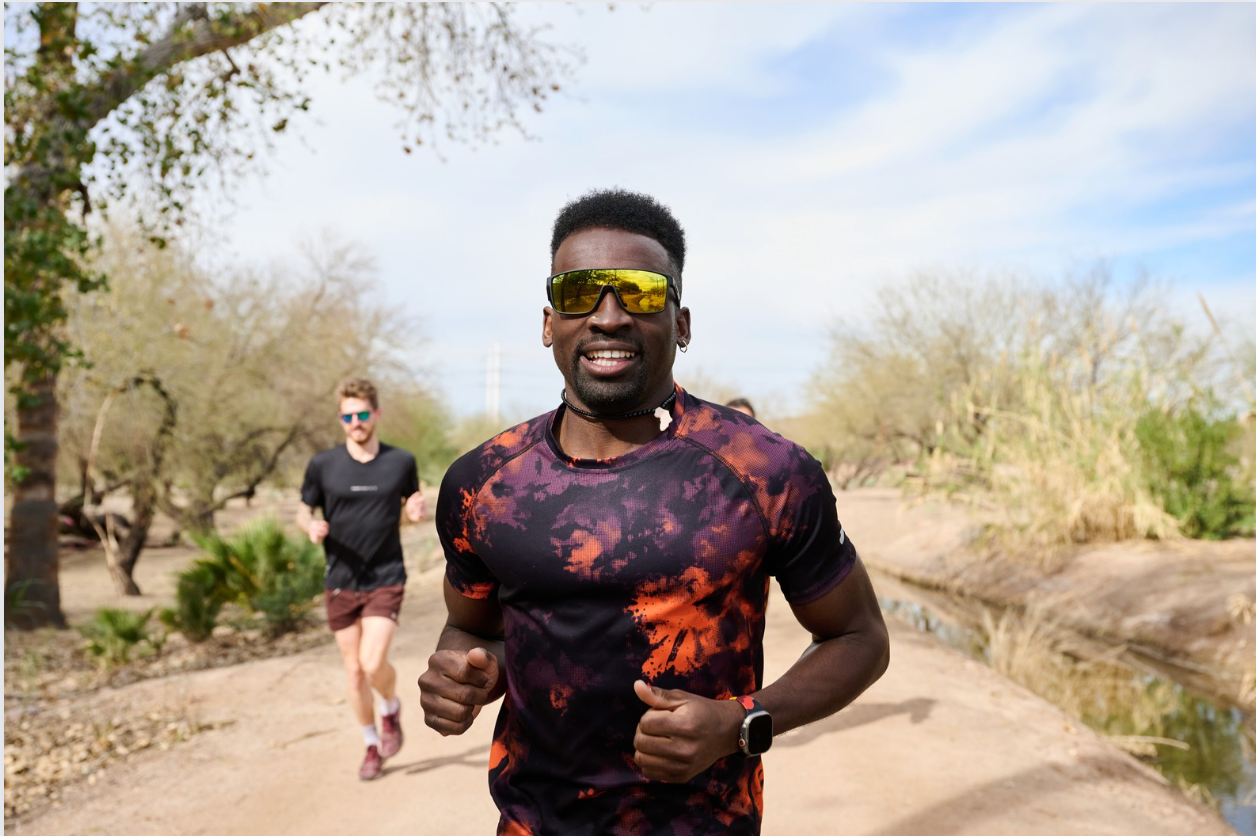In our fast-paced world, where every step seems to echo with the urgency of deadlines and duties, there exists a realm where time slows, and each stride becomes a meditation—a pilgrimage towards self-discovery. Today, we sit down with marathon runner and Tifosi ambassador, Steph Pi, whose journey through the world of marathon running is a testament to the resilience of the human spirit and the transformative power of community.

What inspired you to start running marathons, and how did you get into long-distance running?
My journey into long-distance running began in my formative years. I ran cross country in middle school and track and field in high school, fostering a love for the sport that endured through college. It wasn't until a friend convinced me to train for my first half marathon that I truly embraced the challenge of long-distance running. Despite initial doubts, her assurance that the 13 miles would one day feel like an everyday run propelled me forward—and she was right!
Can you share your most memorable marathon experience or race? What made it special or challenging?
My most memorable race undoubtedly remains the 2018 Boston Marathon. The weather threw us a curveball, with torrential downpour, freezing temperatures, and howling winds. It was a humbling experience that ended in a DNF due to hypothermia. Yet, from that setback emerged a story of redemption as I returned the following year to conquer the course—a testament to the resilience forged in adversity.
At Tifosi, our mantra is “live your passion”. How would you describe how you live out your passion?
My passion lies in inspiring others to lead healthy, active lives. As a physical therapist, I advocate for holistic wellness, emphasizing the importance of addressing the root cause of illness and injury. Through my platform, I share my love for running, showcasing how this sport can enrich our lives and foster a sense of community. If I can ignite the spark of passion in even one person each year, I consider it a victory.
Marathon training can be grueling. Could you describe your typical training routine, including mileage, cross-training, and recovery strategies?
During my marathon training cycles spanning 20-24 weeks, I gradually build mileage from 50 to over 85 miles per week. My week includes a mix of running workouts, including tempo runs, intervals, and long runs, complemented by strength training sessions focusing on split-body workouts and heavy weights. Recovery is paramount, with massages, compression boots, and rest days interspersed throughout the regimen.
Do you have any pre-race rituals or superstitions that you follow?
Prior to races, I indulge in a 20-30 minute easy run and strive to keep the day clear of commitments to alleviate pre-race jitters. It's a time for quiet reflection and mental preparation, allowing me to approach the starting line with a sense of calm and focus.
Nutrition plays a crucial role in marathon running. What is your pre-race meal, and how do you stay fueled during a marathon?
My pre-race meal consists of a bagel with butter, Maurten 320 drink mix, and black coffee consumed approximately two hours before the race. During the marathon, I rely on caffeinated gels taken before the start and at every 5k mark to maintain energy levels and stave off fatigue.
Advice for someone considering running their first marathon?
Don't fixate on time goals—focus on finishing and savoring the journey. Set aside a lengthy training block of at least 20 weeks to gradually build mileage and prevent overwhelm. Additionally, prioritize nutrition, fueling your body with high-quality calories to sustain you through the rigors of training.
Do you have any running gear or equipment that you swear by?
Absolutely! Tifosi running eyewear are a must-have for their comfort and protection during long runs. Additionally, Vaseline is indispensable, safeguarding against chafing and blisters, allowing me to push through high-mileage weeks without discomfort.
Marathon running often involves support from a running community. Can you talk about your involvement with running clubs or groups and how they have impacted your running journey?
The running clubs in Miami have been a cornerstone of my journey, offering invaluable support and camaraderie. Whether through large group runs or intimate gatherings, I've gleaned insights and encouragement from fellow runners, anchoring me to my goals and fostering a sense of belonging.
How do you recover after completing a marathon, both physically and mentally?
Post-marathon recovery entails a restorative shower followed by a day of rest—both physically and mentally. Indulging in favorite meals and engaging in activities outside of running helps recalibrate my mind and body, preparing me for the next chapter of my journey.
What do you enjoy most about the marathon running community, and how can others get involved or find support within this community?
The marathon running community is a tapestry woven from threads of support and shared passion. What I cherish most is the unwavering encouragement and inclusivity, regardless of one's goals or abilities. To get involved, reach out to local running stores, join social media groups, or participate in organized runs—every step is an invitation to join a community united by the love of running.
In the symphony of footfalls and heartbeats, we find not only the rhythm of the road but the harmonies of human connection—a testament to the transformative power of the marathon journey.





